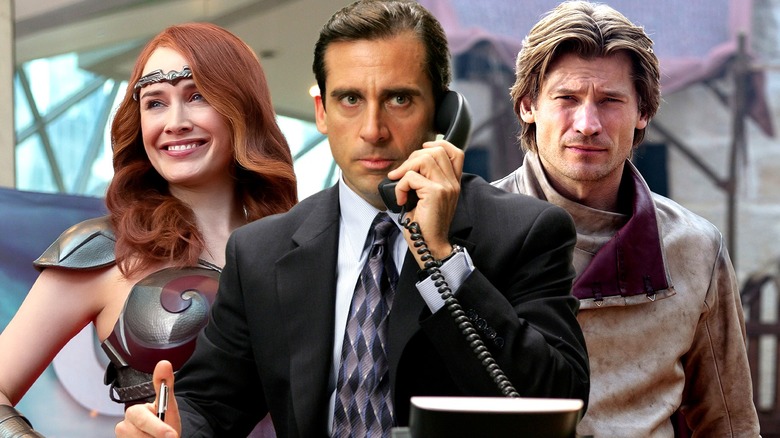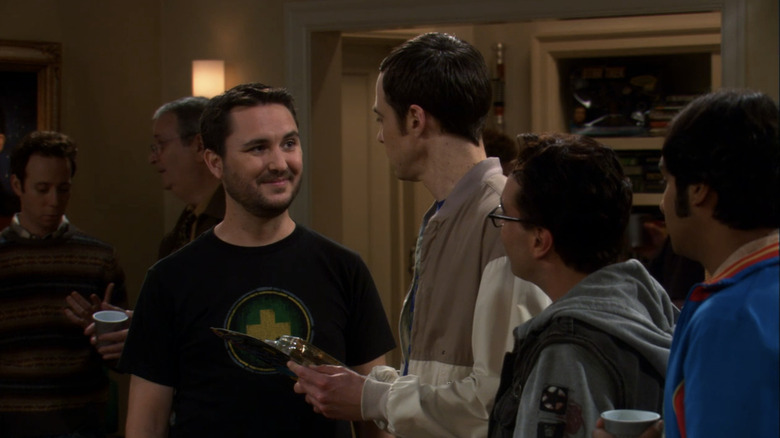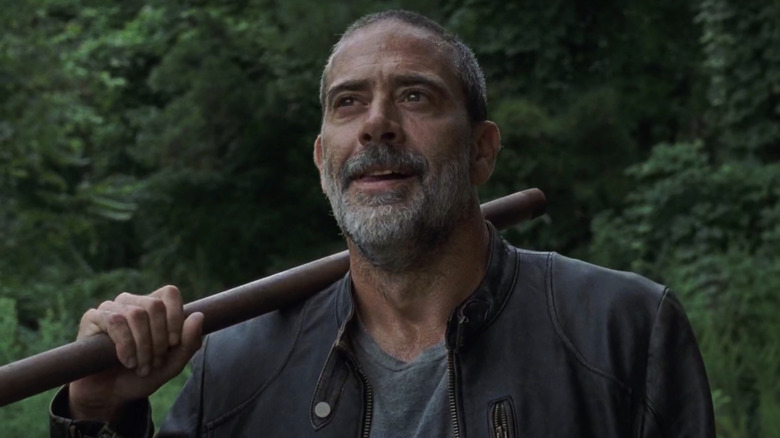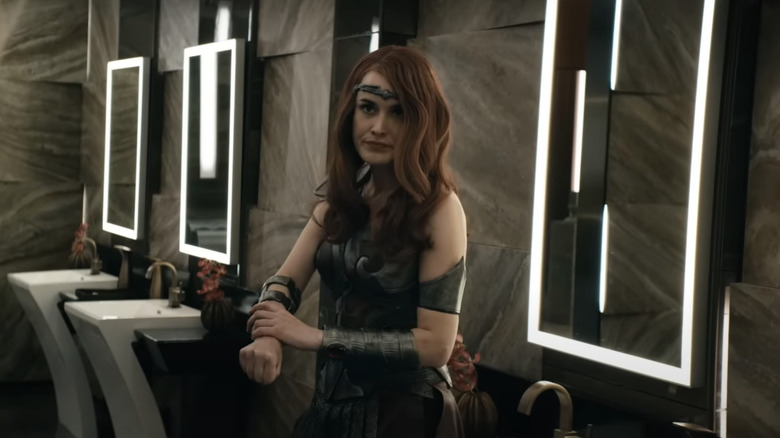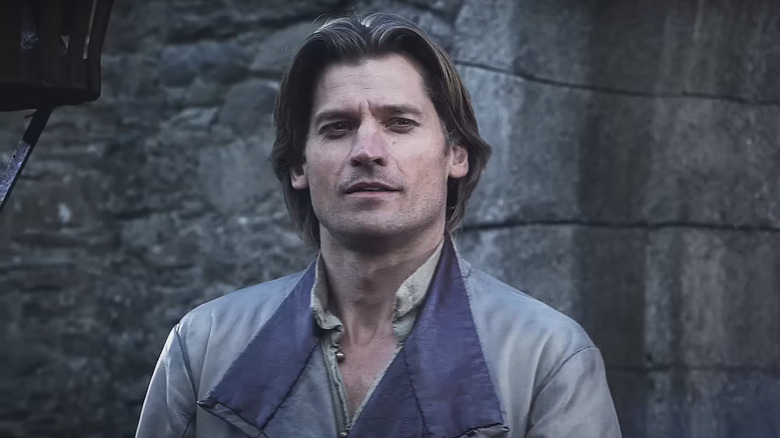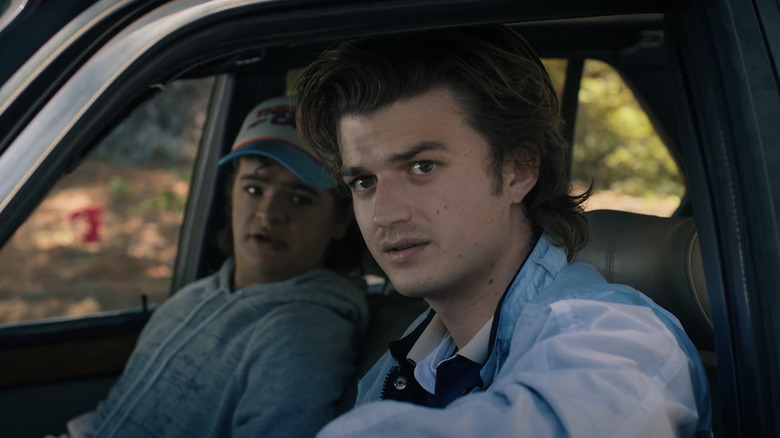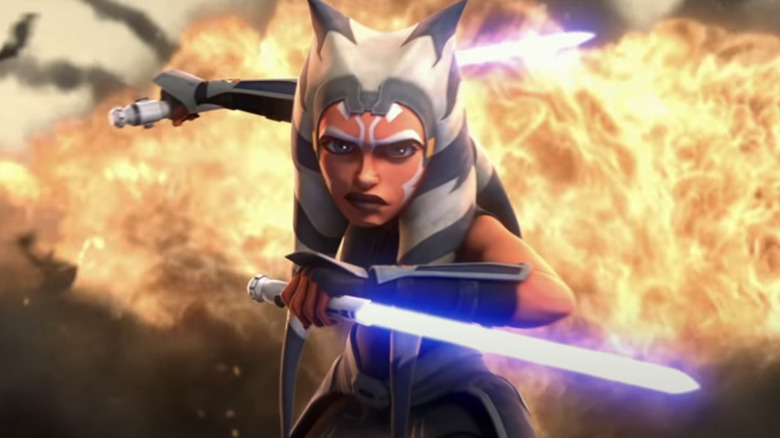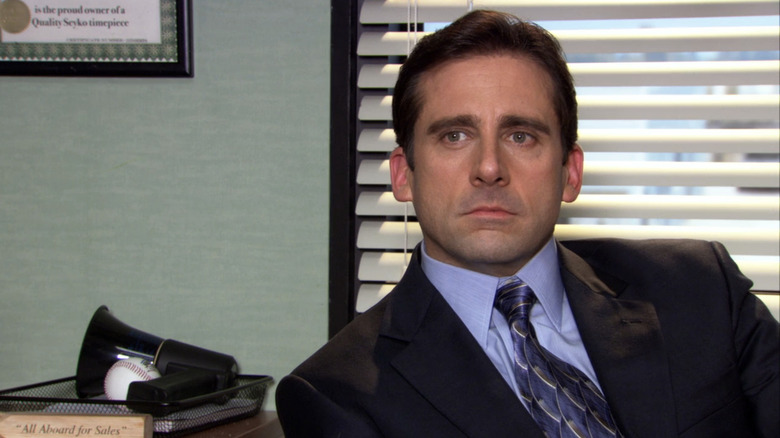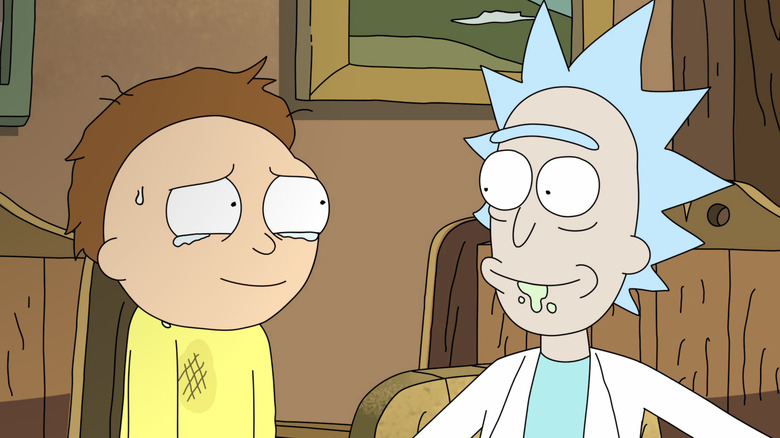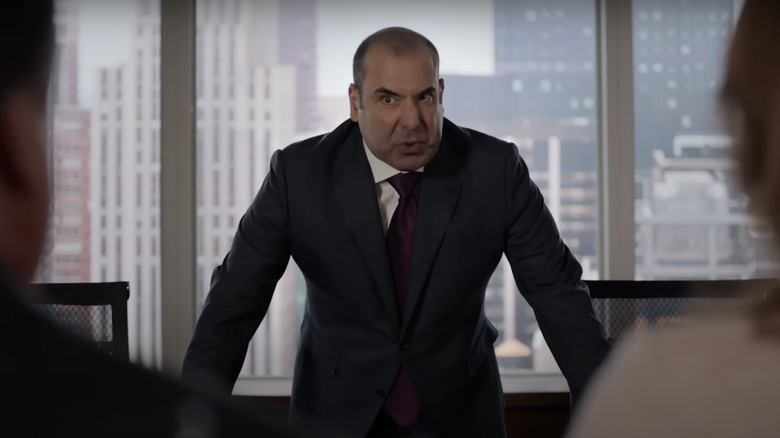Characters That Went From Most-Hated To Most-Loved By Fans In A Single Episode
As the saying goes, you never get a second chance to make a first impression. But the first impression isn't necessarily the last. This holds true whether we're talking about people in real life or fictional characters on television. We all have those characters we initially despise, often from their very first appearance. Much of the time, we're far from alone in our anger, and the characters in question become infamous for being widely despised. But occasionally, these characters completely win us over. We go on to forget how much we disliked them until we re-watch the show from the beginning and are reminded of our early hatred. This ire may come from a misunderstanding, or from ignorance of these characters' origins and the factors that motivate them to commit their despicable deeds. It might also come from behind-the-scenes changes or significant restructuring. However it happens, as we get to know these characters better, we start sympathizing with them, and sometimes even come to adore them in all their flawed glory.
While the majority of well-written shows reveal their characters' arcs gradually over the course of several seasons, some of them cram so much development into a single episode that these individual installments manage to completely change our opinions of these characters. Such episodes typically feature a character performing a redemptive deed that makes up for whatever previous wrong-doing they have committed, or a flashback sequence that explains a tragic backstory, which helps viewers understand why the fictional person they hate is the way they are. From Michael Scott to Jaime Lannister, we're taking a look at the TV characters who went from most-hated to most-loved by fans in the space of a single episode.
Wil Wheaton - The Big Bang Theory
On "The Big Bang Theory," the fictitious version of Wil Wheaton (played by the "Star Trek" actor himself) starts out as Sheldon Cooper's arch-nemesis and a long-time entry in his "Mortal List of Enemies." The entry is justified, as Wil initially comes across as a very vile and petty character who, in every appearance, manages to ruffle not only Sheldon's feathers, but also those of the audience.
Aside from disappointing a young Sheldon (who was perhaps the only passionate fan of Wil's "Star Trek" character Wesley Crusher) by not showing up at the 1995 Dixie Trek Convention Sheldon was looking forward to, Wil is shown to be the character's Machiavellian foil. The actor lies and cheats through every game they happen to play against each other. Two particularly vivid examples emerge when he lies to Sheldon about grieving his recently-deceased grandmother (who he later reveals is alive) to win the Mystic Warlords of Ka'a tournament at Stuart's comic book store, and when he persuades Penny to break up with Leonard just to win a bowling contest against the gang.
But Wil eventually becomes a pleasant recurring character later on in the series, and it all starts with the Season 5 episode "The Russian Rocket Reaction." Here, he makes amends with Sheldon by gifting him a Wesley Crusher action figure and a heartfelt note of apology. In subsequent appearances, Wil proves to be a loyal and trustworthy friend, supporting the gang any way he can. Wil helps Sheldon and Amy out by appearing in the "Star Trek" episode of their "Fun With Flags" show, provides advice to Penny on how to navigate her acting career, and stands by Penny's side when she gets fired from the movie they're both starring in — an act that results in him getting fired as well.
Negan - The Walking Dead
In most of the final few seasons of "The Walking Dead," Negan glories in being one of the most fearsome villains in television history. He kicks this antagonistic career off with a bang by killing two beloved main characters from Rick's group (Abraham and Glenn) in his debut episode, the Season 6 finale "Last Day on Earth." There are no pulled punches here: Negan is introduced as the maniacal and tyrannical leader of the Saviors, complete with a god complex and a penchant for killing for sport.
While viewers enjoy watching Negan's evil deeds during the show's post-Season 6 slump — Jeffrey Dean Morgan's acclaimed portrayal of the character is one of the show's highest points — many still have trouble forgiving him for Glenn's death. As a result, plenty of watchers couldn't initially buy into his redemption arc, which begins in Season 9, when Negan endures a dark night of the soul while being imprisoned by Rick's group.
But Negan's eventual redemption comes full circle in the Season 10 finale "Here's Negan," which reveals his tragic backstory and shows that the character, who is mourning the loss of his wife, is capable of genuine grief and true salvation. He later repents for his misdeeds and joins Rick's group, eventually asking Maggie to forgive him for killing Glenn. Ironically, Negan went on to become a fan-favorite character himself, several seasons after killing fans' beloved Glenn. In many ways, it's all thanks to the devastating revelations of "Here's Negan."
Queen Maeve - The Boys
Albert Einstein once said, "The world is a dangerous place, not because of those who do evil, but because of those who look on and do nothing." This quote aptly sums up the world of "The Boys," and Queen Maeve's role in it. Though Queen Maeve (Dominique McElligott) isn't as villainous as the rest of the Seven, she's still culpable for their many crimes, due to her passive and indifferent acceptance of them. This comes into especially vivid focus when she and Homelander let hundreds of innocent airplane passengers die as a result of a failed rescue mission in Season 1.
How can she live with this? She's introduced as a cynical and worn-down superhero, who has grown more and more apathetic as a way to cope with working in the shady underbelly of Vought International's superhero business. Her passivity isn't just restricted to the battlefield, either: She becomes complicit in ignoring her own bisexuality when Vought rebrands her as a lesbian superhero, simply because being a lesbian is simpler to market.
Thankfully, Maeve sheds her jaded superhero shtick in the Season 2 finale "What I Know"; she even comes to aid Kimiko and Starlight in kicking Stormfront's Nazi butt in an especially iconic scene. In the same episode, Maeve also uses her wits to collectively save herself, Elena, Butcher, Ryan, and Starlight from Homelander by threatening to leak mobile footage from the airplane crash. This puts her own reputation and public status on the line. It's a major move that's big enough to transform many fans' opinions of her.
Jaime Lannister - Game of Thrones
Over the course of "Game of Thrones," Jaime Lannister (Nikolaj Coster-Waldau) goes from chucking a 10-year-old Brandon Stark out a window to hide his affair with his twin sister Cersei in Season 1 to saving Brienne in Season 3's "The Bear and the Maiden Fair" and setting out on a path of redemption. He doesn't always follow that route perfectly, granted, and some fans have trouble forgetting his past crimes. On the Reddit discussion thread for "The Bear and the Maiden Fair," u/obeythed humorously commented, "At what point can I root for a man who pushed a child out of a window?" But, tellingly, they followed that up by saying, "Tonight took a pretty big step in that direction."
"Game of Thrones" isn't a show where characters go from being entirely bad to being entirely good (or vice versa), given their innumerable layers and the obstacles they face. Such is the case with Jaime, whose redemption arc is marred by lapses back into his former self, often as a result of his obsession with Cersei. Ultimately, he even chooses to die by Cersei's side. But "The Bear and the Maiden Fair" reveals Jaime's complicated interior landscape, and sees him put his life on the line for Brienne. His relationship with her goes on to help him become a better person and a true knight. It's a powerful episode in every sense, and it made plenty of fans think twice about the controversial Lannister knight.
Steve Harrington - Stranger Things
Introduced as Nancy's cocky and stereotypical high school jock boyfriend, Steve Harrington (Joe Keery) was widely disliked by audiences throughout Season 1 of "Stranger Things." Shown to be under the influence of his puerile friends Tommy and Carol, Steve is often inconsiderate towards Nancy, and goes so far as to spray paint nasty rumors about her and Jonathan (with whom she only shares a friendship at this point) around town. Things quickly escalate: After seeing Nancy and Jonathan together, Steve initiates a fight with the latter boy and gets his butt handed to him. But, in the Season 1 finale, "Chapter Eight: The Upside Down," Steve comes to understand his mistakes and makes genuine amends with Nancy and Jonathan. He proceeds to leave his toxic friend group and joins the main group of kids. Despite their age difference, Steve bonds very well with these youngsters and enjoys endearing chemistry with them throughout the following seasons of the show (especially Dustin).
After becoming attached to the Steve Harrington of later seasons, many fans of the show have found it difficult to re-watch Season 1, where Steve is, at best, an anti-hero. Reddit user u/The_real_sanderflop commented, "I haven't rewatched season 1 yet and im not ready for Steve to be a preppy, minor antagonist again after 3 seasons of him being the absolute best." Others are more able to accept Steve's actions in Season 1 as understandable, if disagreeable: Another Reddit thread makes an impassioned defense of Season 1 Steve as a good person who's just under Tommy and Carol's bad influence. Regardless, one thing is clear: The Season 1 finale of "Stranger Things" changes Steve Harrington for the better, and fans love him for it.
Ahsoka Tano - Star Wars: The Clone Wars
Now regarded as a significant character in the "Star Wars" franchise, Ahsoka Tano didn't exactly receive a warm welcome from fans when she was introduced as Anakin Skywalker's padawan in the 2008 animated series "Star Wars: The Clone Wars." Many viewers thought that Ahsoka was whiny, immature, and generally annoying, not to mention that her tube top and miniskirt were problematic choices for a 14-year-old character. Ahsoka's many embarrassing mistakes, plenty of which come from her impatience, also irritated viewers.
But in Season 3, the character undergoes immense growth and proves herself to be a worthy addition to the "Star Wars" canon. This comes to a wonderful head in Episode 22, "Wookiee Hunt," in which Ahsoka leads a group of Jedi younglings to safety and demonstrates her leadership skills. Ahoka's popularity changed dramatically after this installment aired. She has since appeared in a number of "Star Wars" projects, including "Star Wars Rebels," "The Mandalorian," "The Book of Boba Fett," and "Tales of the Jedi." She's also slated to get her very own series, simply titled "Ahsoka."
Upon rewatching "Star Wars: The Clone Wars," many viewers are surprised by Ahsoka's early immaturity. But they might also be more forgiving of it than they were the first time around: Her flaws are key to her development from sidekick to revered hero in her own right. As u/Mshka on Reddit pointed out, "The fact that she was a little annoying in the first two seasons adds to the growth and maturity we see later on into the show. After rebels and then season 7 of clone wars she is by far one of the most interesting Star Wars characters and one of my personal favorites next to Kanan and Obi-Wan."
Michael Scott - The Office
The idea that Michael Scott (Steve Carell), widely beloved regional manager of the Dunder Mifflin Scranton office, was ever despised now seems absurd. But Season 1 of "The Office" does indeed present a very unlikable version of Michael many fans have forgotten ever existed. He's a sexist, racist, and altogether insensitive oaf of a boss who seems to hold absolutely no redeeming qualities.
Season 1 didn't enjoy the ratings later seasons of the now-classic show did, and perhaps Michael has something to do with that. He gains more redeeming qualities in ensuing installments, and the show itself gains a more optimistic tone, which sets it apart from its British antecedent's cynicism. These changes first pop up in Season 2, Episode 1, "The Dundies." Here, Michael makes a tiny but noteworthy stride forward by giving Pam an award for having the whitest sneakers in the office, rather than an embarrassing trophy commemorating her long engagement, as he's done in the past.
Though Michael remains an annoying guy, from this point on, he's significantly nicer and more considerate. For example, in the heartwarming Season 3 episode "Business School," he supports Pam by attending her art show, expressing his admiration of her, and purchasing her drawing to hang in the office. All this growth starts with "The Dundies."
Rick Sanchez - Rick and Morty
Rick Sanchez of "Rick and Morty" is introduced as Morty's alcoholic and apathetic grandfather. Although it's definitely entertaining to see Rick use his scientific smarts to get through each episode's wacky adventures, many early viewers doubted he would turn out to be an emotionally engaging character. This makes sense, considering the way he consistently treats Morty with complete disregard. His selfishness and cruelty seem to be insurmountable in Season 1's earliest episodes.
Yet these doubts are dispelled in Season 1, Episode 5, "Meeseeks and Destroy." Here, audiences finally get to see Rick's compassionate side as he consoles a traumatized Morty after he's almost sexually assaulted. On a Reddit discussion thread regarding the episode, u/sickBird commented, "I just loved how caring Rick was towards Morty near the end of the episode. Nice to know that deep down he really does care about the little guy." Others agreed, including, u/IdiotsLantern, who said, "This was the episode that convinced me there was a lot more going on with Rick, emotionally, [than] I was expecting."
If you or anyone you know has been a victim of sexual assault, help is available. Visit the Rape, Abuse & Incest National Network website or contact RAINN's National Helpline at 1-800-656-HOPE (4673).
Louis Litt - Suits
Throughout the nine-season run of "Suits," Louis Litt (Rich Hoffman) serves as ace attorney Harvey Spector's rival and arch-nemesis at the Pearson Hardman law firm. Much like Harvey and Mike, early viewers couldn't help but clench their fists every time Louis popped up in a scene: He was a character they loved to hate. Viewers' disdain was absolutely warranted by his despicable behavior and foul attitude towards his junior associates and peers. But as the show progresses, he begins to warm up to other characters, particularly Mike, which enables viewers to warm up to him in turn. Certain moments, which reveal why Louis behaves the way he does, do a lot of heavy lifting in this regard by laying his insecurities regarding friendships and relationships bare. These chinks in his armor cause him to push people away and become somewhat repulsive.
While Louis' likeability fluctuates throughout the series, he becomes increasingly sympathetic after the aptly-titled Season 3 episode "I Want You to Want Me," in which he starts bonding with Mike. Excited over Mike becoming his associate, Louis bakes a cake for him bearing the words "Welcome to Team Litt," only for his heart to get stomped into the dirt when Mike chooses to become Harvey's associate instead. On the Reddit discussion thread of the episode, u/BrandyAlexander9 commented, "My eyes welled up a little bit, I'm not going to lie ... seeing Louis running like an excited little kid to get Mike's cake and then having that look of disappointment just broke my heart." He may not always be the nicest guy, but only the stoniest heart can resist melting in the face of this scene.
